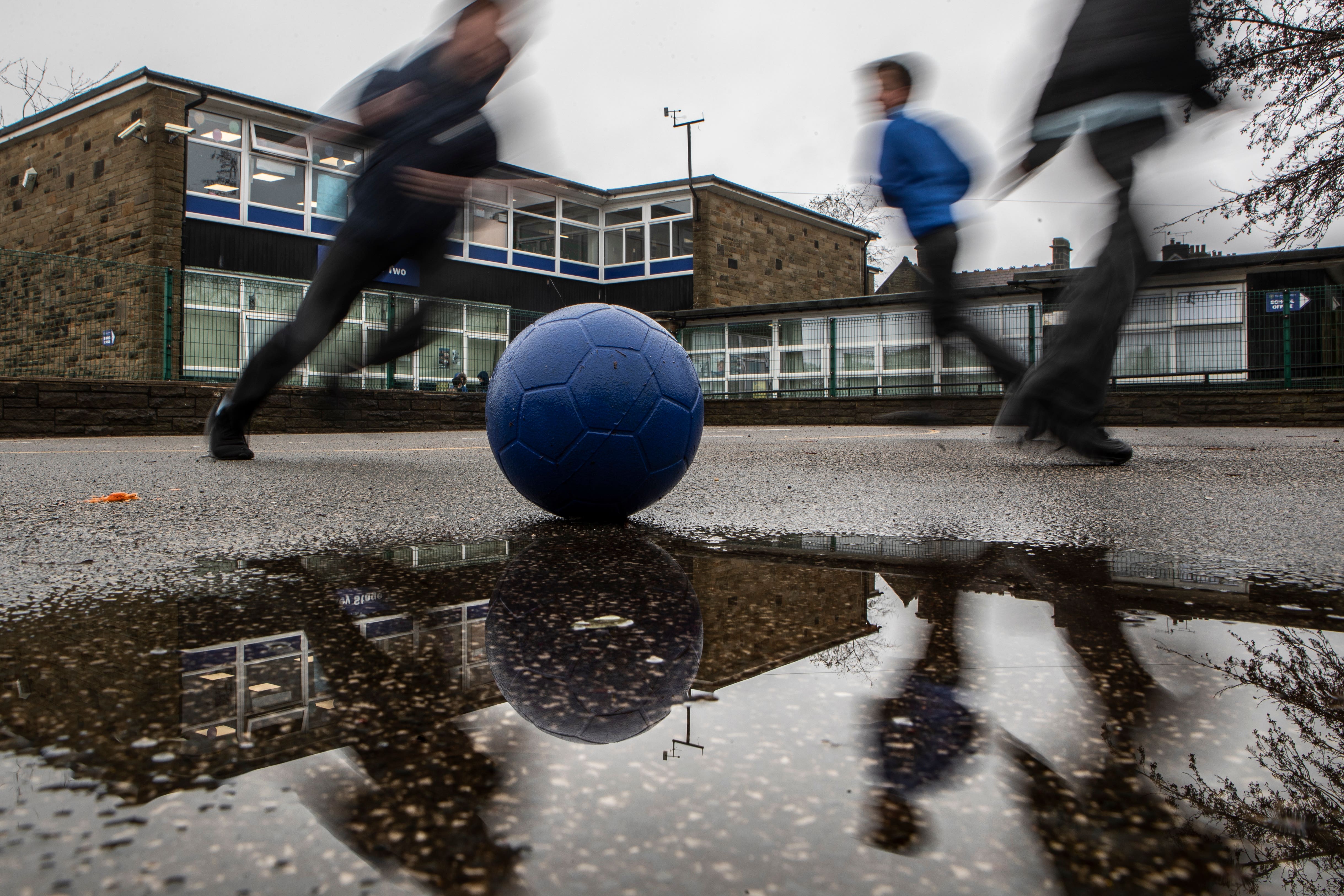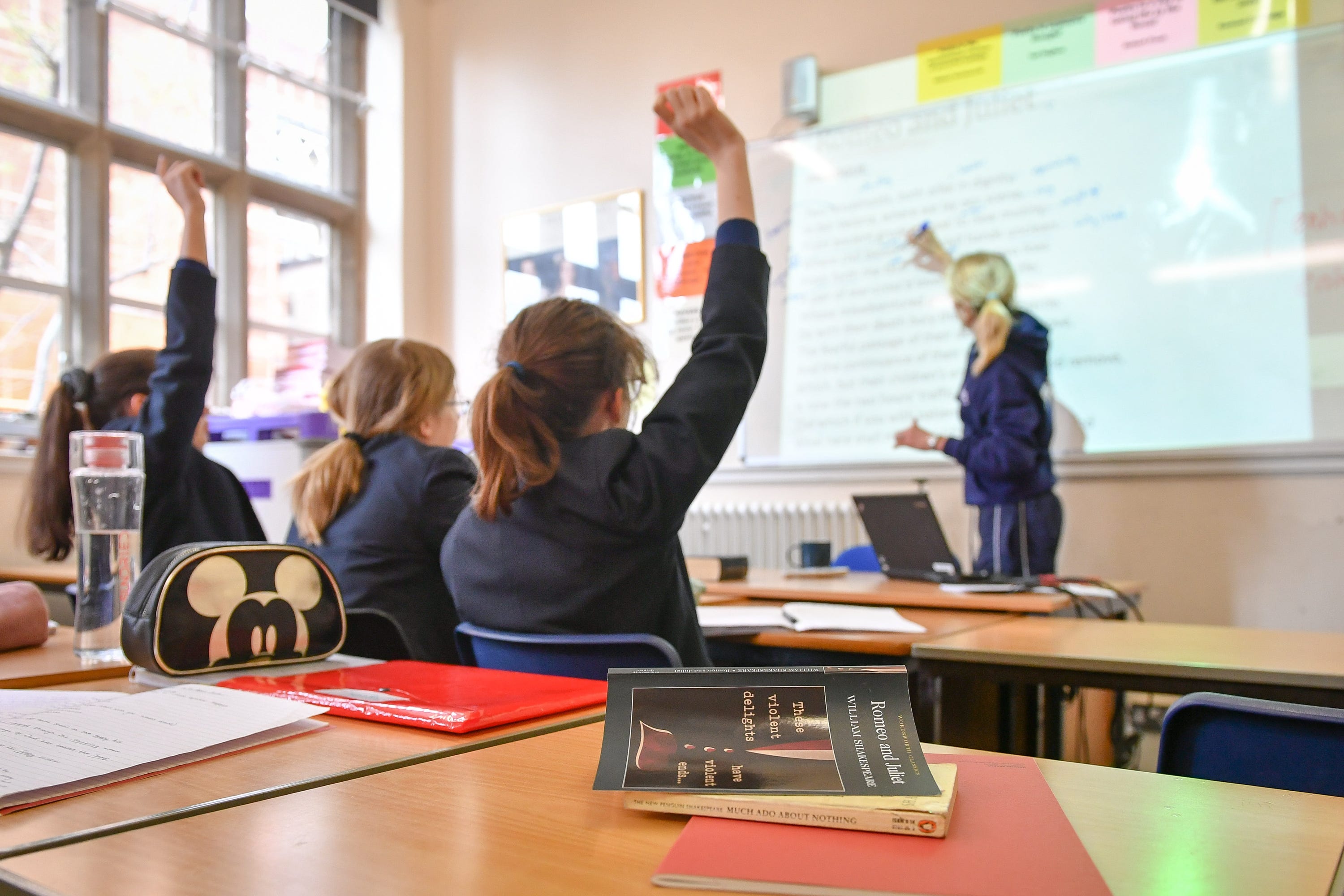Exclusions and suspensions hit record high as warning issued to all schools
The rise of suspensions comes amid warnings of challenging behaviour in classrooms following the Covid-19 pandemic

Your support helps us to tell the story
From reproductive rights to climate change to Big Tech, The Independent is on the ground when the story is developing. Whether it's investigating the financials of Elon Musk's pro-Trump PAC or producing our latest documentary, 'The A Word', which shines a light on the American women fighting for reproductive rights, we know how important it is to parse out the facts from the messaging.
At such a critical moment in US history, we need reporters on the ground. Your donation allows us to keep sending journalists to speak to both sides of the story.
The Independent is trusted by Americans across the entire political spectrum. And unlike many other quality news outlets, we choose not to lock Americans out of our reporting and analysis with paywalls. We believe quality journalism should be available to everyone, paid for by those who can afford it.
Your support makes all the difference.The number of suspensions in schools in England has taken a shock rise as numbers hit a record high, Government figures show.
The disciplinary action has risen by more than a third in a year. It is the “highest recorded” number of suspensions in a single academic year, the Department for Education (DfE) said.
There were 786,961 suspensions in the 2022/23 academic year, compared with 578,280 in 2021/22 – a rise of 36%, according to the data.
The number of permanent exclusions also increased to a record high in the 2022/23 academic year, the DfE said. Overall, there were 9,376 permanent exclusions in 2022/23, compared with 6,495 the year before – a rise of 44%, the figures show.
The rise of suspensions – which are when a pupil is excluded from a school for a set period of time – comes amid warnings of challenging behaviour in classrooms following the Covid-19 pandemic.
Permanent exclusions were “relatively stable” before the pandemic, but the longer-time trend over the decade has been a gradual increase, the DfE said.
The most common reason for suspensions and permanent exclusions in the 2022/23 academic year was “persistent disruptive behaviour”.
Education minister Stephen Morgan said: “These shocking figures are a wake-up call about the problems that have grown in our schools in recent years.
“They put into sharp focus that too many pupils are being held back by their background and that our education system is failing to meet the needs of children with additional needs.
“Every pupil deserves to learn in a safe, calm classroom and we will always support our hard-working and dedicated teachers to make this happen.”
He said the Government is “determined to get to grips with the causes of exclusions” and he said it has already committed to more mental health professionals in secondary schools, free breakfast clubs in primary schools, and earlier intervention in mainstream schools for pupils with special needs.
Mr Morgan added: “But we know poor behaviour can also be rooted in wider issues, which is why the Government is developing an ambitious strategy to reduce child poverty led by a taskforce co-chaired by the Education Secretary so that we can break down the barriers to opportunity.”
Suspensions were highest in the summer term of 2022/23, with 276,000 suspensions, which is unusual as they are typically higher in the autumn term.

Beth Prescott, education lead at the Centre for Social Justice (CSJ) think tank, said the figures were “truly shocking”.
She said: “Combined with the crisis in school absence, with so-called “ghost children” at near record levels and one in five kids persistently absent, there is a pressing and immediate emergency unfolding across our schools.”
Pepe Di’Iasio, general secretary of the Association of School and College Leaders (ASCL), said: “School leaders only ever suspend and exclude pupils as a last resort and, therefore, this rise would appear to reflect the increasingly complex needs and challenging behaviour we are seeing in schools and across wider society.
“Behavioural issues are often a result of poor mental health or unmet special educational needs.
“We desperately need the new government to work alongside the education profession to put support systems in place that ensure young people get the help they need to stop these problems from escalating.”
He added: “It’s vitally important that there is investment in education and family support services to ensure children get help as soon as they require it and behavioural issues do not spiral to the point where suspensions and exclusions are the only option left available to school leaders.”
Paul Whiteman, general secretary at school leaders’ union NAHT, said: “The fact that we’ve reached this headline figure of record suspensions and exclusions should be a deep concern to everyone involved in education and it will be another stark reminder to the new Government of the scale of the task ahead of them. One thing is very clear, we cannot go on as we are.
“Schools work incredibly hard to support children and use suspensions and exclusions as a last resort, but they cannot be expected to address the full range of complex root-causes that can often lead to disruptive behaviour in the classroom.”